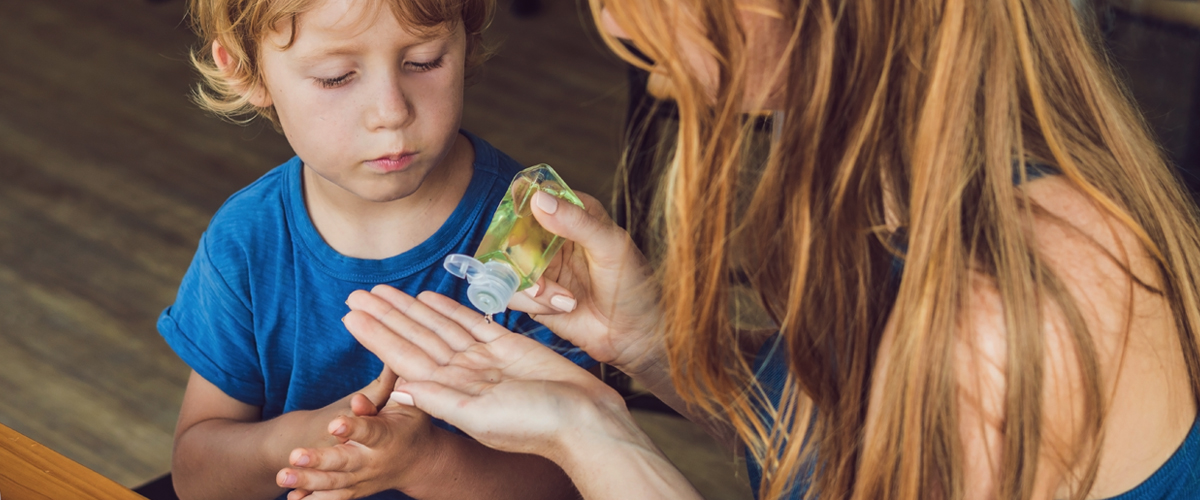How to Talk to Kids About the New Coronavirus
It’s important to have an open conversation with children about the outbreak and keep them informed.


The new coronavirus has disrupted our daily routines, altering the way we work and live. For children, this time is especially confusing. While many parents’ natural instinct is to protect their kids from scary things, shielding them from coronavirus news is not the answer. To help children process changes and find some normalcy, the best thing to do is to talk to them about what’s going on, says Dr. Shannon Bennett, site clinical director of the NewYork-Presbyterian Youth Anxiety Center.
“An open conversation where we ask them questions and allow them to ask us questions is an important thing to do across all ages,” says Dr. Bennett, who is also an assistant professor of psychology in Clinical Psychiatry at Weill Cornell Medicine. “The way we answer those questions will obviously be different depending on the age and developmental stage of the child, but I think being honest and trying to stay close to facts without letting our own anxiety seep into the conversation is the best way to go.”
Here are some tips on how talk to kids about the outbreak of COVID-19
Help them understand the facts
By now, even young children have heard of COVID-19, either from seeing it on TV, learning about it when their schools were closed, talking to friends, or overhearing parents and other family members’ discussions. The concept of a virus or a pandemic may be difficult for them to grasp, but you can help them understand the topic better by giving them a point of reference they can relate to. “Illness is always around in schools at this time of year, so you can liken it to things that they are already familiar with,” Dr. Bennett says. “That may be less scary for them and help them to understand that we always need to keep our bodies clean and healthy, and we’re doing what we can to make sure that is true now, as always.”
Let the kids take the lead
Remember, this is a two-way conversation. Start by asking your kids what they know about the outbreak, then make that your starting point for a meaningful discussion. Encourage your kids to talk about their feelings — it might be hard for them to identify emotions like fear and anxiety — and to ask questions, even if you don’t have answers. “You can positively reinforce their questions, letting them know that together you will see if you can find the answers,” says Dr. Dara Steinberg, an attending psychologist at NewYork-Presbyterian Morgan Stanley Children’s Hospital and assistant professor of medical psychology in Pediatrics and Psychiatry at Columbia University Irving Medical Center. The Centers for Disease Control and Prevention provides some simple ways to explain COVID-19 to kids.
It’s important you validate what they want to know and don’t dismiss their concerns. “Telling a child ‘not to worry’ likely will not allay their fears,” Dr. Steinberg says. “Instead, normalize and acknowledge their worries. You can discuss concrete ways your family is managing the situation, and remind them of other challenges they have faced and overcome in their lives to reinforce the idea of resilience.”
Be good models
While many adults may have to actively work to stay calm during the outbreak, doing so is the best way to take care of yourself and your family during this uncertain time. Your children will pick up on your words and behavior, which will affect how they react. “Kids hear things from us that we don’t always think that they’ve heard, so we should be aware of what we’re saying and know that our kids are always listening to our words and watching our behavior,” Dr. Bennett says. “We should model staying calm. We should model washing our hands and careful hygiene. We can share with our children the ways in which we’re preparing to keep our family safe. Outside of the home, you can share how doctors, teachers, and adults that they know are working very hard to make sure that everybody stays as safe and healthy as possible.”
Offer a reassuring voice
With social distancing being encouraged to protect us from the virus, it’s as important as ever to find ways to connect with your kids at home. Check in with them often and show them that you are present during what may be a frightening time. “Movie marathons, home arts and crafts activities, kitchen science experiments, baking — there are lots of things we can do,” Dr. Bennett says. “The most important thing is to be proactive, both in our preparedness and in our conversations with our youth and with each other.”
Beyond having honest conversations with your kids, you can help them by sticking to a routine as much as possible. Create a schedule and write it down so they can follow it. (For younger kids who can’t read yet, make a visual schedule with pictures.) “Let kids know this is going to happen today, and this is what’s going to happen tomorrow, even if it’s different than what they’re used to,” Dr. Bennett says.
Dr. Steinberg agrees: “Routines help establish a set of habits and patterns that can add order and predictability to daily life. They can help children and their families adjust to new tasks, such as more frequent hand-washing, seeing grandparents through FaceTime instead of in-person, and doing schoolwork remotely. Doing these things in a predictable fashion will help them become ingrained in the child, and over time will seem less like a burden and more a natural part of daily life.”
Additional Resources
Learn about the NewYork-Presbyterian Youth Anxiety Center.

